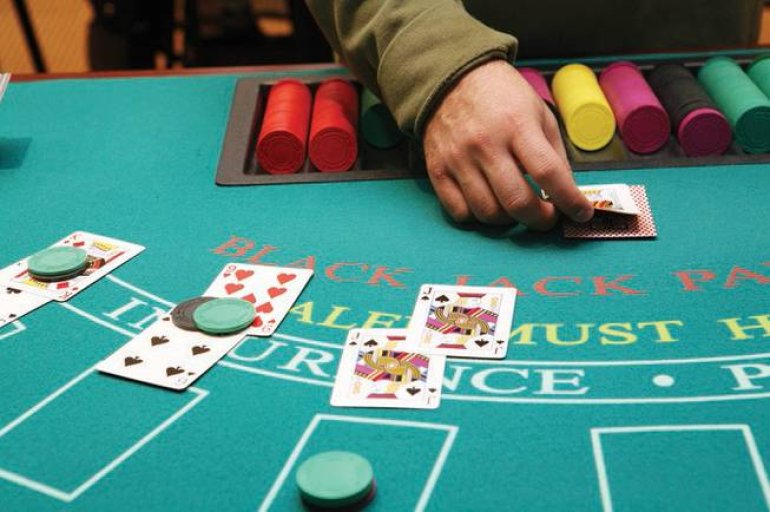The world of casino gambling attracts the attention of millions of people around the world, offering them not only the chance to experience adrenaline and hope for luck but also the chance for big winnings. However, among the most important aspects for many players is the prospects for success and the game's accessibility.
Importance of Minimum Bets in Casino Games
Minimum bets in casinos represent the smallest amount of money a player can bet on a particular game. They can vary depending on the type of game, the casino, and even the time of day.
Minimum bets are important for players:
- They determine the availability of participation for players with different levels of bankroll.
- Some players prefer to start with small bets to gauge their chances of success, while others are willing to risk more.
- In addition, the size of minimum bets can affect the overall gaming experience and be a deciding factor when choosing a particular casino.
For casinos, minimum bets also play a significant role:
- They can attract new players who prefer to start with small bets.
- They affect the overall volume of gaming turnover.
- Setting reasonable minimum bets is one way to control gambling and can help prevent unwanted gambling behavior.
Thus, understanding the importance of minimum bets for players and casinos is a key aspect of studying this topic.
Evolution of Minimum Bets in Casinos
The history of minimum betting in casinos goes hand in hand with the development of gambling. In ancient times, various forms of gambling involved ordinary citizens and aristocracy members. For example, in ancient Rome, dice games were widely practiced, in which participants bet on the result of the throw. These games were popular among the common people and the nobility. The stakes could vary, and participants could choose the level of risk according to their abilities and preferences.

With the development of casinos and the gambling industry, minimum bets have become standard practice. They were introduced to control gaming and manage risk for both players and casinos.
The first formal rules and restrictions for minimum bets appeared in the late 19th and early 20th century, when the first casinos in Las Vegas and Monte Carlo opened. Casinos set minimum bets depending on the game type and the gaming room's status, allowing them to control the flow of players and overall gaming turnover.
With the advent of online casinos and digital gambling platforms, minimum bets have also changed. Online casinos offer more flexible and varied minimum bets, allowing players to choose their risk level and comfortable bet size. Moreover, technological advances are leading to new forms of gambling that also have minimum bet rules.
The development of minimum bets in casinos reflects the evolution of the gambling industry from ancient times to modern digital technology. This process involves various changes in rules and restrictions, as well as adapting to players' changing needs and preferences. The dependence of minimum bets on gaming preferences
Minimum Bets in Casino Games
Bets in Card Games
In poker, blackjack, and other card games, minimum bets can vary depending on the specific rules and type of game. For example, in Texas Hold'em, the minimum bet is usually determined by the structure of a particular table or tournament.
Bets in Table Games
In games such as roulette and craps, the minimum bet amount may depend on the bet selected and the type of table. For example, in roulette, the minimum bet may differ for different types of bets - number bet, color bet, or column bet.
Bets in Slot Machines
In slot machines, minimum bets are usually determined by the number of lines and the bet per line. For example, a slot machine may have a minimum bet of $0.01 per line, and the player can choose the number of lines and the bet per line.
Factors Affecting the Minimum Bets
- The type of game. Each game has its rules and betting structure, which determine the minimum bet size. For example, roulette bets may be different from poker bets.
- Popularity of the game. Less popular games often have lower minimum bets to attract more players and increase game turnover.
- Risk and Winning. Games with higher risk usually have higher minimum bets for potential player losses. For example, high-risk card games may have higher minimum bets to balance the player's skill level.
- Gambling hall status. In some casinos, minimum bets may depend on the status or location of the gaming room. VIP areas, of course, will have higher minimum bets than regular gaming rooms.
Thus, minimum bets in casinos depend largely on players' gaming preferences and various factors that determine the rules and conditions of the game.
 Practical Aspects of Minimum Bets
Practical Aspects of Minimum Bets
How to choose a casino game with suitable minimum bets
- Evaluate your bankroll. Determine your bankroll - the amount of money you will spend on gambling. Based on this, choose a game with the lowest stakes that match your financial capabilities.
- Research the rules and betting structure. Understanding a particular game's rules and betting structure will help you choose the best minimum betting option. Different games may have different minimum betting requirements, so it's important to familiarize yourself with them beforehand.
- Consider your preferences. Choose a game that matches your interests. For example, minimum-stakes card games may be the right option if you prefer strategy games.
Effect of minimum betting on a player's bankroll
- Bankroll Management. Define a bankroll management strategy based on minimum bets. Limit the losses you will incur and stick to that plan.
- Minimize risks. Select games with minimal stakes to minimize the risk of losing large amounts of money. This will allow you to play longer and increase your chances of winning.
- Avoid wagering. Don't try to make up losses by increasing your bets. Follow your bankroll and stick to a playing strategy based on your budget.
- Search for bonuses and promotions. Explore opportunities for bonuses and promotions from casinos that can help increase your bankroll and reduce your risk when playing with minimal stakes.
Rules and regulations governing minimum bets
Legal Requirements
Various countries and regions have laws and regulations governing minimum bets in casinos. These laws may define minimum and maximum bet sizes, requirements for funds in the player's account, and other aspects to protect players' interests and prevent unwanted gambling behavior.
Internal Casino Rules
Each casino sets its own internal rules and regulations regarding minimum bets. These rules can vary depending on the particular casino and the type of game. For example, large gambling establishments may have different minimum bets for different rooms or types of slot machines.
Recommendations from Gambling Regulators
Gambling industry regulators may issue recommendations and guidelines for setting casino minimum bets. These recommendations may include advice on protecting players' interests, ensuring fair play, and preventing gambling problems.
Industry Self-Regulatory Standards
Industry organizations and associations may sometimes develop self-regulatory standards regarding casino minimum bets. These standards may be binding on the association's members and are intended to maintain high standards of professionalism and ethics in the gaming industry.
Rules and regulations governing minimum bets include statutory requirements, internal casino rules, regulatory recommendations, and industry self-regulatory standards.
Trends and Changes
- Impact of technological innovation. As technology advances in the gambling industry, new gaming formats and platforms that affect minimum bets are emerging. For example, virtual and augmented realities may change how players bet and interact with slot machines.
- Adapting to market needs. Casinos constantly adjust their minimum bets to meet players' demands and requirements. For example, in response to the growing popularity of low-risk games, some casinos may lower their minimum bets to attract more players.
- Government regulation. Political and legislative changes can impact minimum bets at casinos. For example, some countries may impose strict minimum betting limits to increase gambling controls or protect players.
- Increased competition. Competition between casinos can lead to changes in minimum bets. Casinos may set lower minimum bets or offer bonuses and promotions to attract more players and retain them.
- Region-specific variations. Minimum bets can vary by region and local rules and regulations. For example, minimum bets in major cities may be higher than those at casinos in provincial areas.
- Changes in gaming popularity. The popularity of certain games can affect minimum bets. As demand for certain games increases, casinos may adapt their minimum bets to meet players' needs.
In general, changes and trends in casino minimum bets are driven by several factors, including technological innovation, player demands, government regulation, competition between casinos, and changes in game popularity.
Conclusion
So, studying minimum bets in casinos allows us to understand better the dynamics of the gambling industry and its relationship with player needs. Minimum bets play an important role for both casinos and players, and their importance continues to grow in the context of constant changes in the industry. In the course of researching this topic, we found the following:
- The importance of minimum bets. Minimum stakes are key in determining a player's accessibility to game participation and affecting the overall gaming experience.
- Variability and dependency. Minimum bets in casinos vary depending on game type, popularity, casino rules, and regional laws.
- Practical application. Players need to be able to choose games with appropriate minimum bets and manage their bankroll effectively to minimize risk.
- Regulation and change. Various factors affect minimum bets, such as technological innovation, government regulation, competition, and changing player preferences. Therefore, they may change over time following industry dynamics and market needs.
Understanding and analyzing minimum bets in casinos is essential for players and operators. Further research in this area can help improve gaming practices, providing participants with a more enjoyable and safer gaming experience.


























